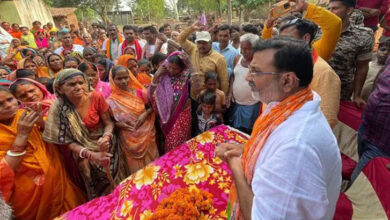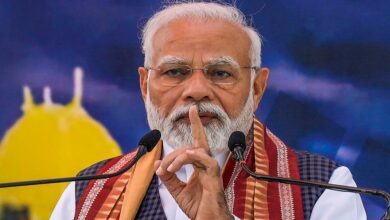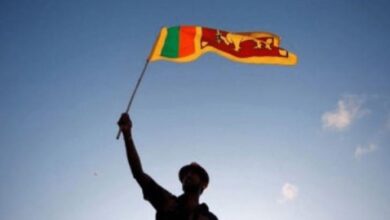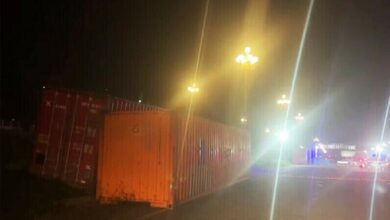Smaller parties chide major ones for holding Nepal parliament hostage
As impasse persists, President Ramchandra Paudel expresses concern with Speaker Ghimire and Assembly chair Timilsina over public concerns being sidelined.

By Tika R Pradhan
The main opposition CPN-UML has been obstructing the federal Parliament since last month demanding a high-level investigation into the recent incidents of gold smuggling through the Tribhuvan International Airport.
On Friday, even the ruling parties obstructed the National Assembly, protesting against the UML’s ongoing obstruction of the legislature. Both chambers of the federal parliament have been obstructed since July 26.
As major parties have taken Parliament hostage for a long time, President Ramchandra Paudel expressed his concern to House Speaker Devraj Ghimire and Assembly chair Ganesh Timilsina on Friday.
According to Kiran Pokharel, press adviser to the President, Paudel wanted to know about the efforts being made to open the House, saying that people are frustrated with the obstruction of the lawmaking process. On their part, Ghimire and Timilsina had asked for the President’s support to end the deadlock.

However, Parliament’s obstruction is set to continue with both the ruling and main opposition parties sticking to their guns. As the disagreement persists, other parties in the opposition, including the Rastriya Swatantra Party (RSP), have started speaking out against the impasse.
“The major parties have been taking Parliament hostage. They must pay the price,” said Santosh Pariyar, chief whip of the RSP. “People are suffering from floods, landslides and farmers from lumpy skin disease in their cattle but the older parties are determined not to change their tactics.”
With no signs of Parliament, where people’s concerns should be raised, functioning smoothly soon, Pariyar said, the aspirations of common Nepalis for change had been disregarded.
The government has refused the opposition demand for a high-level panel to investigate gold smuggling, arguing that it would affect the police’s ongoing investigation. The obstruction was tantamount to suppressing people’s voices, he argued, while some crucial bills in the pipeline will be delayed.
Swatantra Party chief Rabi Lamichhane has demanded that the Speaker take an initiative to open the House. In the letter handed over to the Speaker on Friday, Lamichhane also expressed his party’s commitment to not taking remunerations for the days that saw obstructions due to the clash between the political parties.
After two days of discussions between the major parties represented by Prime Minister Pushpa Kamal Dahal, UML chair KP Sharma Oli and Congress President Sher Bahadur Deuba, the UML allowed Deputy Prime Minister and Home Minister Narayan Kaji Shrestha to speak in the House on Tuesday.
However, Shrestha refused to commit to forming a high-level probe panel following which the UML continued the obstruction in both the Houses of Parliament.
“How does the UML function—dissolving the House when in government and always obstructing the House when in opposition?” asked Ganga Kumari Belbase, a Maoist Centre member of the National Assembly.
Maoist leaders and lawmakers have accused the Speaker of taking the UML’s side and only allowing his former party’s lawmakers to speak, while denying them a chance.
Speaker Devraj Ghimire, who was elected to the House on the UML’s ticket, has not been able to convince the ruling and the opposition parties to put their differences aside for the sake of letting the House do its job.
“The UML leaders seem to be bargaining for something else,” said Hitraj Pande, chief whip of the Maoist Centre. “It even refused the home minister’s call for it to wait for 35 days so that the CIB completes its probe.”
The UML leaders remain adamant on their stance on the high-level probe, alleging that the government is trying to spare Maoist leaders while going after the leaders of other parties.
“You can see that leaders and lawmakers like Sunil Sharma who have been criticising the government have been arrested,” said Subas Chandra Nembang, the deputy UML parliamentary party leader. “We are not against the CIB investigating the issue but just want another high-level panel to probe the multi-pronged gold smuggling case.”
He said the prime minister had told the UML leaders that he was not against forming a high-level probe panel but the home minister asked them to wait for 35 days. “This is not possible,” said Nembang.
According to former Speaker Daman Nath Dhungana, Parliament does not belong to the UML alone and it cannot take it hostage for too long because that would give an impression that it was trying to disrupt the ongoing CIB investigation into gold smuggling.
“The government cannot interrupt the CIB’s ongoing investigation and therefore, the UML’s Parliament obstruction is irresponsible and people have started taking it seriously,” Dhungana told the Post. “I think UML will have to back off from its irresponsible decision soon, due to internal pressures if nothing else.”
Dhungana said other parties like the RSP have started to create pressure by speaking out against the move of the parties to hold Parliament hostage. Now the people should also build pressure on them, he suggested.
In Tuesday’s meeting, Rastriya Prajatantra Party chair Rajendra Lingden accused the UML of engaging the ruling parties as it bargains for power. “Can some parties take the whole country and its Parliament hostage?” he asked. “Why should we follow what the three parties decide?”
Earlier, the UML had obstructed the House from July 5, demanding the prime minister’s resignation over his controversial remarks concerning the possible involvement of India in making and unmaking governments in Nepal. But the main opposition swiftly withdrew its obstruction after Dahal expressed his regret over his own comment made in the parliament.
Tika R Pradhan is a senior political correspondent for the Post, covering politics, parliament, judiciary and social affairs. Pradhan joined the Post in 2016 after working at The Himalayan Times for more than a decade.




